Reconsidering the Phase One Trade Deal with China in the Midst of the Pandemic

It may be hard to remember given the pandemic, but trade tensions between the United States and China eased in January 2020 with the inking of the Phase One agreement. Under the deal, China committed to a massive increase in its purchases of U.S. goods and services, with targets set for various types of products. At the time of the pact, the U.S. economy was operating near full capacity, and any increase in U.S. exports stemming from the pact would likely have resulted in only a small boost to growth. The environment is now starkly different, with the U.S. economy operating far below potential. While the promised increase in Chinese purchases seems unlikely to be achieved, any appreciable increase in exports from the agreement could deliver a meaningful boost to the economy.
Tracking the COVID‑19 Economy with the Weekly Economic Index (WEI)

At the end of March, we launched the Weekly Economic Index (WEI) as a tool to monitor changes in real activity during the pandemic. The rapid deterioration in economic conditions made it important to assess developments as soon as possible, rather than waiting for monthly and quarterly data to be released. In this post, we describe how the WEI has measured the effects of COVID-19. So far in 2020, the WEI has synthesized daily and weekly data to measure GDP growth remarkably well. We document this performance, and we offer some guidance on evaluating the WEI’s forecasting abilities based on 2020 data and interpreting WEI updates and revisions.
The Federal Reserve’s Large‑Scale Repo Program
The repo market faced extraordinary liquidity strains in March amid broader financial market volatility related to the coronavirus pandemic and uncertainty regarding the path of policy. The strains were particularly severe in the term repo market, in which borrowing and lending arrangements are for longer than one business day. In this post, we discuss the causes of the liquidity disruptions that arose in the repo market as well as the Federal Reserve’s actions to address those disruptions.
MBS Market Dysfunctions in the Time of COVID‑19

Haoyang Liu, Asani Sarkar, and coauthors study a particular aspect of MBS market disruptions by showing how a long-standing relationship between cash and forward markets broke down, in spite of dealers increasing the provision of liquidity. The analysis also highlights an innovative response by the Federal Reserve that seemed to have helped to normalize market functioning.
Federal Reserve Agency CMBS Purchases

On March 23, the Open Market Trading Desk (the Desk) at the Federal Reserve Bank of New York initiated plans to purchase agency commercial mortgage-backed securities (agency CMBS) at the direction of the FOMC in order to support smooth market functioning of the markets for these securities. This post describes the deterioration in market conditions that led to agency CMBS purchases, how the Desk conducts these operations, and how market functioning has improved since the start of the purchase operations.
Delaying College During the Pandemic Can Be Costly
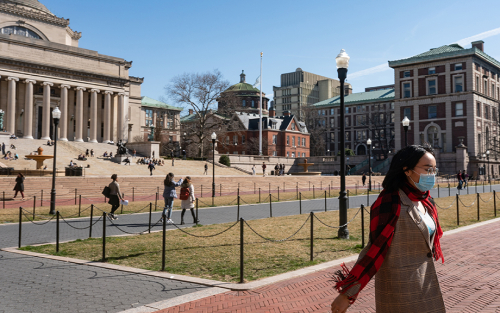
Many students are reconsidering their decision to go to college in the fall due to the coronavirus pandemic. Indeed, college enrollment is expected to be down sharply as a growing number of would-be college students consider taking a gap year. In part, this pullback reflects concerns about health and safety if colleges resume in-person classes, or missing out on the “college experience” if classes are held online. In addition, poor labor market prospects due to staggeringly high unemployment may be leading some to conclude that college is no longer worth it in this economic environment. In this post, we provide an economic perspective on going to college during the pandemic. Perhaps surprisingly, we find that the return to college actually increases, largely because the opportunity cost of attending school has declined. Furthermore, we show there are sizeable hidden costs to delaying college that erode the value of a college degree, even in the current economic environment. In fact, we estimate that taking a gap year reduces the return to college by a quarter and can cost tens of thousands of dollars in lost lifetime earnings.
Medicare and Financial Health across the United States
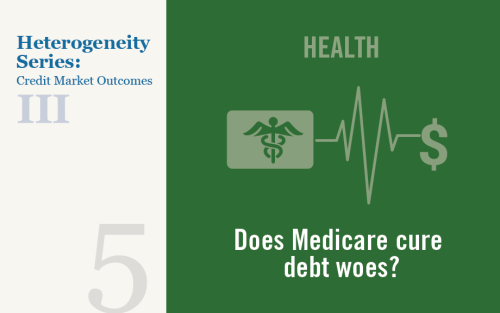
Consumer financial strain varies enormously across the United States. One pernicious source of financial strain is debt in collections—debt that is more than 120 days past due and that has been sold to a collections agency. In Massachusetts, the average person has less than $100 in collections debt, while in Texas, the average person has more than $300. In this post, we discuss our recent staff report that exploits the fact that virtually all Americans are universally covered by Medicare at 65 to show that health insurance not only improves financial health on average, but also is a major explanation for the heterogeneity in financial strain across the country. We find that Medicare affects different parts of the United States differently and plays a particularly important role in improving financial health in the least advantaged areas.
Who Has Been Evicted and Why?
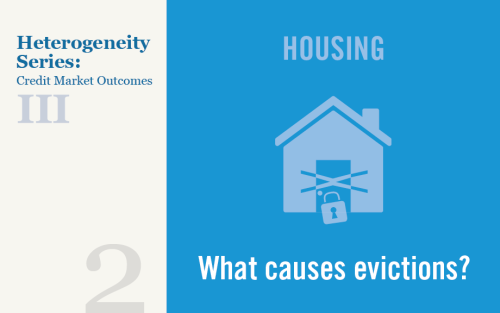
More than two million American households are at risk of eviction every year. Evictions have been found to cause prolonged homelessness, worsened health conditions, and lack of credit access. During the COVID-19 outbreak, governments at all levels implemented eviction moratoriums to keep renters in their homes. As these moratoriums and enhanced income supports for unemployed workers come to an end, the possibility of a wave of evictions in the second half of the year is drawing increased attention. Despite the importance of evictions and related policies, very few economic studies have been done on this topic. With the exception of the Milwaukee Area Renters Study, evictions are rarely measured in economic surveys. To fill this gap, we conducted a novel national survey on evictions within the Housing Module of the Survey of Consumer Expectations (SCE) in 2019 and 2020. This post describes our findings.










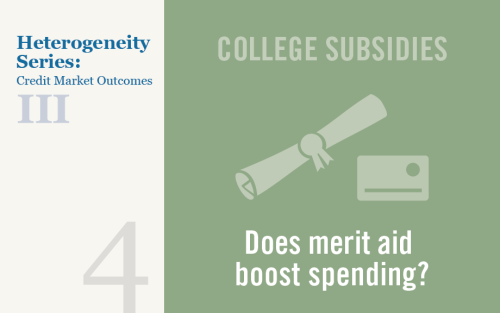
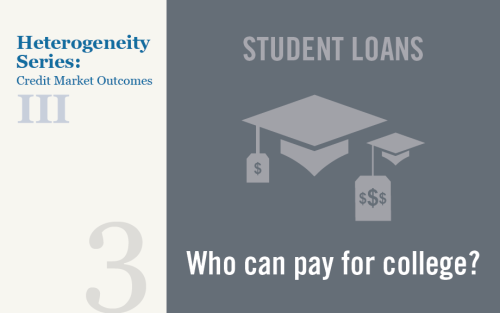
 RSS Feed
RSS Feed Follow Liberty Street Economics
Follow Liberty Street Economics